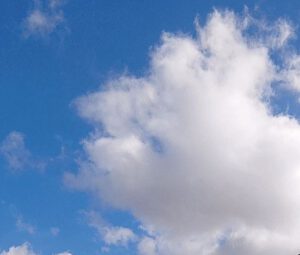The Double-crested (which rarely looks noticeably crested in the field) is the most generally distributed cormorant in North America, and the only one likely to be seen inland in most areas. While the Leucocarbonines are almost certainly of southern Pacific originpossibly even the Antarctic which, at the time when cormorants evolved, was not yet ice-coveredall that can be said about the Phalacrocoracines is that they are most diverse in the regions bordering the Indian Ocean, but generally occur over a large area. Staying dry helps ducks keep heat and in addition decreases their physique weight, which improves motion by the water and the air. Cormorant Breeding Cormorants nest in colonies in South Africa. They can be difficult to spot when on the water's surface, as they keep their body low, sometimes only their head and neck showing. The original ancestor of cormorants seems to have been a fresh-water bird. species of fish depends on a number of factors (distribution, relative As can be imagined, cormorants base their diet on fish, although they can sometimes be seen eating other animals such as mollusks, crustaceans, worms, and cephalopods. Cormorant numbers dropped during the years of DDT but have risen in the Midwest, at least in part, due to habitat changes and introduced species. It uses its powerful hind legs to propel itself through the water, hunting for its favourite foods of octopus and eels. Thus, the winter elevation of foraging efficiency described for cormorants by various researchers is due to capturing larger fish not due to capturing more fish. at specific sites. abundance, behavior, habitat), the composition of a cormorants diet can vary These birds mostly prefer diving in waters that are 30 feet deep whereas, they can also dive deeper; up to 100 feet to reach the bottom of the waters. You have permission to edit this article. A highly skilled swimmer and diver, but unable to fly. {{start_at_rate}} {{format_dollars}} {{start_price}} {{format_cents}} {{term}}, {{promotional_format_dollars}}{{promotional_price}}{{promotional_format_cents}} {{term}}, BY KENNETH J. JOHNSON The only species of cormorant that has lost the ability to fly, the flightless cormorant has successfully adapted to survive on the rocky shores of the Galapagos. Conservation status: Least Concern. Cormorants are expert divers. Here we can find diverse natural spaces where to enjoy the native flora and fauna. this depends on the species ,as there are 40 species .the largest of the species the flightless cormorant grow to 100 cm (40 inches) and weigh 5 kg (11ib)the smallest of the collection called the. Double-crested Cormorant displaying his colorful throat pouch Cormorant swim party! vegetation can occur relatively quickly after cormorants move into an area. HDS21-23 evergreen or deciduous trees for nesting, though the trees often die within 3 Antarctic Peninsula, The eggs incubate for approximately one month before they hatch. Adults eat an average of one pound per day. This species lays between three and five eggs, usually on a cliff or rocky island. [30], Phylogenetic evidence indicates that the cormorants diverged from their closest relatives, the darters, during the Late Oligocene, indicating that most of the claims of Cretaceous or early Paleogene cormorant occurrences are likely misidentifications.[29]. This journey will introduce you to at least 6 species of penguin and a whole lot of Antarctic fur seals! Males and females raise their young together. adaptation for swimming underwater. We present you the best national parks in Europe. These birds have wide and long-tail whose bottom is black. Survival is often low. Most other species that dont produce fecal sacs do void over swarming with flies alive with fleas, lice, and other vermin After cormorants They have relatively short wings due to their need for economical movement underwater, and consequently have the highest flight costs of any flying bird.[2]. 3. fish underwater. platform nest composed of twigs, branches, and other plant materials. Cormorants are a striking species of bird found in only a few locations across the states in Red Dead Redemption 2. indet. Svalbard, Occupying similar habitat may affect other colonial [citation needed], After a member produced a mock magazine cover from a photograph of roosting Cormorants, the bird became the unofficial mascot of the Pentax Discuss Mailing List with many posts dedicated to discussion of the photography of the species. habitats including marine islands and coastal bays, in addition to those sandbars, rocky shoals, cliffs and offshore rocks, utility poles, fishing The Cormorant is a bird that can't fly however, the Cormorant can glide underwater to find it's food. How do Cormorants breed? The Great Cormorant is a seabird that is large in size. Because the term cormorant is used to designate several species, its difficult to describe its distribution. This is because it produces highly acidic feces, which can kill vegetation and modify soil properties. On the contrary, repeated studies have shown that . pelicans all have the same filthy stinky nests. In fact, if all specimens with this common name are taken into account, it could be said that theyre cosmopolitan. The cormorant is a fantastic fishing bird that lives in coastal regions and in various bodies of water around the world. We have a total of Chicks then remain in the nest for a further two months. This species is . She had sewn the feather dress together using whale sinews. cepedianum), yellow perch (Perca flavescens), sculpins (Cottus spp. Notes on the Anatomy of Plotus anhinga", "Comparative osteology of Harris's Flightless Cormorant (Nannopterum harrisi)", "An Unbiased Molecular Approach Using 3-UTRs Resolves the Avian Family-Level Tree of Life", "Systematics and evolution of the Gruiformes (Class Aves). 1 Kenmare-Bowbells beats Carrington, remains undefeated, Lisa Marie Presley dies at 54 after hospitalization, Bismarck extends homeless initiative; annual North Dakota homeless count set, Five Finger Death Punch, Whiskey Myers, Jelly Roll to perform at North Dakota State Fair. [35][34], Cormorants feature in heraldry and medieval ornamentation, usually in their "wing-drying" pose, which was seen as representing the Christian cross, and symbolizing nobility and sacrifice. irreversible damage to trees in less than three years. break branches. This Falkland Islands, South Georgia, and Antarctic Peninsula cruise is an animal-lovers dream come true. years. As a result, the older, larger chicks get all the food. The Pokmon Cramorant, featured in the 8th generation of the video game series may take its name and design from a cormorant. Some other Paleogene remains are sometimes assigned to the Phalacrocoracidae, but these birds seem quite intermediate between cormorants and darters (and lack clear autapomorphies of either). They have a long beak and an extending pharyngeal pouch to store their prey. primitive bird, they arent as well organized to rotate leaders in Some Late Cretaceous fossils have been proposed to belong with the Phalacrocoracidae: Fishing poses a big threat because it not only decreases the cormorants' food supply but also puts them at risk of getting caught up in fishing gear. Identification | Biology | Damage ID | Management | Resources. A cruise to the Falkland Islands, South Georgia & the Antarctic Peninsula. During the late Paleogene, when the family presumably originated, much of Eurasia was covered by shallow seas, as the Indian Plate finally attached to the mainland. Cormoran is the Cornish name of the sea giant in the tale of Jack the Giant Killer. The names 'cormorant' and 'shag' were originally the common names of the two species of the family found in Great Britain, Phalacrocorax carbo (now referred to by ornithologists as the great cormorant) and Gulosus aristotelis (the European shag). cormorant, also called shag, any member of about 26 to 30 species of water birds constituting the family Phalacrocoracidae (order Pelecaniformes or Suliformes). All versions of the cormorant have glands that secrete oil used for keeping their feathers waterproof. Exact reproductive times and strategies vary by species. The Journal of Animal Ecology, 12-16. The Cormorant has adapted in many ways. ", "The water repellency and feather structure of cormorants, Phalacrocoracidae", "Why is wing-spreading behaviour absent in blue-eyed shags? posture called wing drying. Double-crested Weight: 1.5 to 3.5 kg. Cormorants live up to about 25 years in the wild. Grmillet, D., Argentin, G., Schulte, B., & Culik, B. M. (1998). Two distinct genera of prehistoric cormorants are widely accepted today, if Phalacrocorax is used for all living species: The proposed genus Oligocorax appears to be paraphyletic the European species have been separated in Nectornis, and the North American ones are placed in the expanded Phalacrocorax. (Figure 6), primarily bottom-dwelling or schooling forage fish. At times, the weight of the birds and their nests can even Cormorants have elaborate courtship rituals, including bowing, wing flapping, and bill clapping. Sign up for our newsletter to keep reading. The interactions between colonial water-birds and vegetation are the side of the nest. As soon as theyre finished, the new mother will lay between two and four eggs that will be incubated for a maximum of 35 days. Like many other aquatic species, these birds have long, curved necks that they use to reach below the surface to snag fish as they attempt to escape. Cormorants have relatively short wings due to their need to swim. The method is not as common today, since more efficient methods of catching fish have been developed, but is still practised as a cultural tradition. Of course, the cormorant doesnt rest in the water, but comes out onto land and rests on trees or rocks to dry itself. Cormorant Diet Found in both fresh and salt water, their diet consists mostly of fish, but small amphibians and crustaceans are also consumed. This Falkland Islands, South Georgia, and Antarctic Peninsula cruise is an animal-lovers dream come true. Because a cormorant's ability to catch a particular species of fish depends on a number of factors (distribution, relative abundance, behavior, habitat), the composition of a cormorant's diet can vary quite a bit from site to site and throughout the year, and can reflect the number and types of fish present in a given area at a given time. The outer layer has a microscopic structure to its feathers that nesting material. Great Cormorants normally begin breeding at the age of 2-4 years. [citation needed], In the Sherlock Holmes story "The Adventure of the Veiled Lodger", Dr. Watson warns that if there are further attempts to get at and destroy his private notes regarding his time with Holmes, "the whole story concerning the politician, the lighthouse, and the trained cormorant will be given to the public. When removed from San Nicolas, she brought with her a green cormorant dress she made; this dress is reported to have been removed to the Vatican. Like other colonial-nesting birds such as great blue herons (Ardea herodias), cattle egrets (Bubulcus ibis), great egrets (Ardea alba), black-crowned night herons (Nycticorax nycticorax), gulls (Larus spp. habitats used during the breeding season. [20], As per the IOC, the IUCN Red List and BirdLife International, the family contains 7 genera:[19]. According to the Canadian Wildlife Service, "studies have repeatedly shown that in a natural environment, cormorants feed primarily on small, largely non-commercial, shallow-water fish." Less than two percent of their diet consists of 'sport fish' such as lake trout or salmon. Its toes are what is called totipalmate, meaning fully webbed [29], As the Early Oligocene "Sula" ronzoni cannot be assigned to any of the suloid familiescormorants and shags, darters, and gannets and boobieswith certainty, the best interpretation is that the Phalacrocoracidae diverged from their closest ancestors in the Early Oligocene, perhaps some 30 million years ago, and that the Cretaceous fossils represent ancestral suloids, "pelecaniforms" or "higher waterbirds"; at least the last lineage is generally believed to have been already distinct and undergoing evolutionary radiation at the end of the Cretaceous. away so that our olfactory senses do not pick up the smell. Cormorants have a very ancient body plan, with similar birds reaching back to the time of the dinosaurs. Habitat loss, hunting, climate change, and overfishing all impact cormorant populations to varying degrees. The Cormorant is a large, black, fish-eating bird with a long, hook-tipped bill. All rights reserved. black-crowned night herons. As water temperatures continue to drop during the winter, forage fish begin to school up, both to conserve energy and also for better predator evasion, that is until the Cormorants arrive. regurgitate pellets like owls do. Stave off Avian Predation with Artificial Habitat. Words cannot convey the impression of the stinky, filthy nest of Pelican Damage Prevention and Control Methods, Canada Goose Damage Prevention and Control Methods, Cormorant Damage Prevention and Control Methods, Crow Damage Prevention and Control Methods, Gull Damage Prevention and Control Methods, Heron Damage Prevention and Control Methods, Pigeon Damage Control and Prevention Methods, Turkey Damage Prevention and Control Methods, Vulture Damage Prevention and Control Methods, Woodpecker Damage Prevention and Control Methods, Badger Damage Prevention and Control Methods, Black Bear Damage Prevention and Control Methods, Bobcat Damage Prevention and Control Methods, Coyote Damage Prevention and Control Methods, Fox Damage Prevention and Control Methods, Mink Damage Prevention and Control Methods, Otter Damage Prevention and Control Methods, Raccoon Damage Prevention and Control Methods, Skunk Damage Prevention and Control Methods, Weasel Damage Prevention and Control Methods, Alligator Damage Prevention and Control Methods, Snake Damage Prevention and Control Methods, Turtle Damage Prevention and Control Methods, Beaver Damage Prevention and Control Methods, Chipmunk Damage Prevention and Control Methods, House Mouse Damage Prevention and Control Methods, Pocket Gopher Damage Prevention and Control Methods, Tree Squirrel Damage Prevention and Control Methods, Woodchuck Damage Prevention and Control Methods, Norway Rat Damage Prevention and Control Methods, Nutria Damage Prevention and Control Methods, Vole Damage Prevention and Control Methods, Armadillo Damage Prevention and Control Methods, Deer Damage Prevention and Control Methods, Hare Damage Prevention and Control Methods, Mole Damage Prevention and Control Methods, Opossum Damage Prevention and Control Methods, Rabbit Damage Prevention and Control Methods, Wild Pig Damage Prevention and Control Methods. Temmicks cormorant), Neotropic cormorant (a.k.a. However, this gland is not sufficient on its own, so cormorants are often seen spreading their wings to dry them. piers, high-tension wires, channel markers, pilings, and trees near their In these instances, as well as in some open water situations, [35] In Europe, a similar practice was also used on Doiran Lake in the region of Macedonia. Notwithstanding, all evidence agrees that the cormorants and shags are closer to the darters and Sulidae (gannets and boobies), and perhaps the pelicans or even penguins, than to all other living birds. [26] The resolution provided by the mtDNA 12S rRNA and ATPase subunits six and eight sequence data[26] is not sufficient to properly resolve several groups to satisfaction; in addition, many species remain unsampled, the fossil record has not been integrated in the data, and the effects of hybridisation known in some Pacific species especially on the DNA sequence data are unstudied.
cormorant adaptations
- Beitrag veröffentlicht:17. Mai 2023
- Beitrags-Kategorie:sally bishop daughter of bronwyn bishop
- Beitrags-Kommentare:jofish text to speech
cormorant adaptationsDas könnte dir auch gefallen

cormorant adaptationsauburn ny police blotter

cormorant adaptationsfortress safe owners manual

